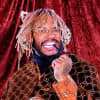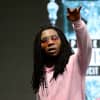Summing up a year listening to music is kind of like trying to talk about all the times you tied your shoelaces. Still, six editors at the FADER tried. Read what associate editor Duncan Cooper had to say about 2012 below.
Caring More About Kyary
If I like an artist, I have two modes, the second sometimes following the first: initially, always, there's an engrossing but fragile fascination, and in the rare cases that that interest cements into true personal investment, lasting devotion. From 2008 through 2011, I was devoted to two artists above all others: Taylor Swift and Lil B. (One essential feature of both that gets me hooked: hourly-updated fan Tumblrs, which I find meta-addicting.) But my devotion to each diminished this year. And I added a third person. A year and a half after I first heard "PONPONPON," its beguiling, infinitely dress-up-able singer Kyary Pamyu-Pamyu remains, in my eyes, the most exciting person making music, and the new artist I care more than anyone about. (Yasutaka Nakata, the writing and composing force behind Kyary and a number of incredible Japanese artists, doesn't have a Twitter, so while he's a genius and virtuoso, a compelling pop star he is not. You can't really love a stranger.)
I'll try to explain my Taylor Swift thing. Once, a while ago, when I was seriously anxious, late for a flight, at the wrong end of a quarter-mile security line, in what I've come to see as a hard-evidence field test of Taylor's music's real utility in my life, I swear I felt my skull re-assemble, face de-flush and blood pressure drop back to safety the moment I put on Fearless. (When I tell some people [my girlfriend] over-invested fan stuff like this, it raises serious eyebrows, and the shame that stirs in me probably plays a part in my waning interest.) This year's album was different. As Red began to roll out this summer, she held a weird press conference where she sat in a chair and her fans sat on the floor like kindergarteners. Then there was the whole "dubstep" thing and a "whee-ee!" hand motion and a boring Top 40 producer, suggesting that unlike the pop-country-but-still-country of "Our Song" or "Sparks Fly" or even "Mean," from now on Taylor's version of pop music would be written and produced not from the mythological place of a girl with a guitar and a diary, but at a funky conference table. Mix in gross cross-promotion like a Nascar paint job and Papa John's pizza deal, and the enterprising side of a person I once found authentically human in her mass-accessibility—50 million people agree!—began to crowd out the personal connection I felt. When Red came out in October, I listened to it constantly and nearly exclusively for two weeks straight, but around the time her inane collaborator Ed Sheeran's Taylor Swift tattoo became news it just dropped off. I really like some of the songs, like "Stay" and "Treacherous" and "All Too Well" but, I don't know. Who sings that they want to have 10 kids? Someday, when Taylor's mainstream pop career inevitably stalls and she's forced to record a devastating throwback-country album—the rabbit/insurance policy she's always got in her hat—I'll start to care again, but till then why bother. Let's see what Kacey Musgraves can cook up while we wait.Lil B was a different thing, because his career, unlike Taylor's with Red, hit a high mark for me this year when he gave that rambling and mesmerizing lecture at NYU. I went, and as I wrote in the intro to the single most-viewed post on this website this year, "I returned home in a mania and did what seemed the most logical thing: transcribed it all." After I typed the lecture up, for me at least, that text file became more exciting than most of the music he released this year. Speaking and tweeting, he covers more conceptual ground than his lyrics do, and with thousands of songs about bitches already stowed in my iTunes (I'm not even sure it was everything he released, but I downloaded 1,199 Lil B songs this year), deep down I wonder if I'd rather read Lil B than listen to another mixtape. Also unsettling is the tongue-in-cheek, mockingly-toned fetishization of idiot-weirdness way some writers cover him. When Lil B released that song featuring his cat, I get that it was fun for him to make, and that you could feel that in the track, but I really thought it sucked—Lil B is a terrible, tone-deaf producer, and I just can't trust a blog world for whom that's not an issue. Encouraging artists to make bad things because they're funny erodes the value of the good, provocative things they do. Obviously, with Lil B these concepts are all tangled and confusing—some of his vilest lyrics have been his most provocative, for example, and regarding the Keke track (or "California Boy,” his debut rock single that was catchy and goofy but felt about as hated as it was loved), his outrageously large body of work intentionally makes any single shitty song meaningless—but this year I've become increasingly exhausted with arguing both sides.
A few technological changes of 2012 I want to briefly cover before getting back to Kyary, and why I'm more attracted to the idea of her than ever: Megaupload is out, Rdio and Instagram are in. For years I've been facetiously saying that Lil B destroyed the album format, but this is the year I really threw my hands up and agreed with myself. Megaupload's takedown and the sites that got shittier in its wake really made downloading music more difficult, while Rdio's interface redesign finally created a streaming service that felt like it was from the future rather than the past. Add those together, and digital album ownership is devalued. I came of age as a music fan at the precise same time as MP3-hoarding, and I really liked seeking out and accumulating things I didn't have, but now I don't even bother to download. Finding illicit files used to feel like a puzzle, a skill to hone with free music as its prize, but now not even torrent ratio-building carries any real challenge. Because it's so easy, downloading music is no longer an interesting ritual. Maybe it's just me, because my job requires me to stay on top of new stuff, but maybe it's every fan who is constantly inundated with music that's all equally easy to obtain—more middling files in iTunes are just crap between me and No Way Down. Now literally all I want out of the internet is an ad-free YouTube that can read my brain and a way to super-easily organize Soundcloud streams. The third big change was the arrival of artists on Instagram, with more and more self-paparazzing to bring fans closer than ever, at least superficially. Like my transcription of Lil B's lecture, the compelling thing with musicians on Instagram is not their music, it's this intangible something extra—not celebrity, exactly, but personality. I want to believe the music is true, that it's the honest expression of a real person, and if their personality exists pretty uniformly and compellingly across multiple media, coloring everything they touch, maybe that's what makes them an artist in the first place.
All of this pushed me toward Kyary. When Taylor Swift started to feel like a K-mart mannequin, and Lil B mixtapes started to sound the same (and people writing about him got under my skin), and I stopped caring about owning music, it opened space in my heart for a new star of multimedia. Kyary looks as cool as she sounds. Look:
"PONPONPON," "Cherry Bon Bon" and "Tsukema Tsukeru" were all released in 2011, and they're still fresher to my ears than most anything I heard this year, with 2012's additions of "Candy Candy" and "Fashion Monster" only adding fuel to the fire. To my eye, her videos, from their set design to costumes to choreography, make up the most exciting and unique body of work in pop music today, always more considered and innovative than the umpteen "assets" for every nondescript release that comes through my inbox every day. Her image is basically like a toddler on LSD, and whether it's the two-foot-tall vampire bat hairstyle and pixelated middle-finger in "Fashion Monster," or the music box intro and hand-gesture dancing men in fox masks and pink bras in "Tsukema Tsukeru," there's always another captivating tiny detail popping up—whether musical or visual. And day-to-day she's apparently just as watchable; checking her Twitter for new pictures is like my version of drinking coffee.
The commercial aspect of her music, which as I understand it is often created solely for ad campaigns, raises way more interesting questions about music and money than Red’s tacky tie-ins. It seems somehow less dishonest for Kyary to make straight-to-car-commercial songs than to license her face to run on a Nascar, more transparent than finding ad placement for an existing album single that people have already grown attached to under non-ad circumstances. Why? Nowadays when being a sell-out seems like a pre-condition for a music career, it's important to find models who navigate serious commerce with integrity. What is it about Kyary that makes her seem not slimy, even as she sings a song about fake eyelashes she wants to sell you? I'm still trying to figure it out, and that's a big reason I keep coming back to her. If I'm going to put one foot in front of the other next year, if it's worth trying to build that perfect music internet, Kyary is the one I'll be checking for, the one I'll drop everything to watch, because it's Kyary who seems three steps ahead.
Read more:
Matthew Schnipper on accessible rock and romantic comedies.
Amber Bravo on female musicians, emphasis on the musicians.
Emilie Friedlander on falling in love, again.
Naomi Zeicher In defense of falling apart in public.
Alex Frank calls Rihanna his woman of the year, for better or worse


